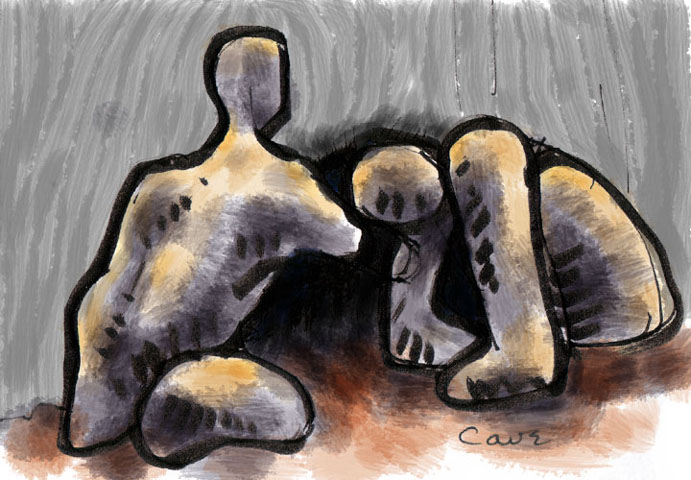William Blake was a great innovator in printmaking and a master
draftsman, as well as one of the great poets of the English language.
He was the creator of what would later be called "viscosity
resist" printing, a method for printing multiple colors from
a single plate. He reworked the prints in his illuminated books
of poetry with watercolor and other media, so no two prints were
the same. The "human form divine" abounds in his work,
although his figuration was more a product of imagination than of
drawing from the model.
The human figures in the virtual world will appear hand-painted,
much as those in the illustration above. The use of hand-painted
textures serves as an homage to Blake, as a recognition of the power
of traditional artmaking methods and their continuity in the digital
age, and as a symbolic inclusion of human gestures into the frequent
sterility of 3D rendering.
The VR performance interface also uses human gesture to control
sound processing. The VR performer inhabits the virtual world and
brings it to life with gestures that elicit sounds and images together.
|
